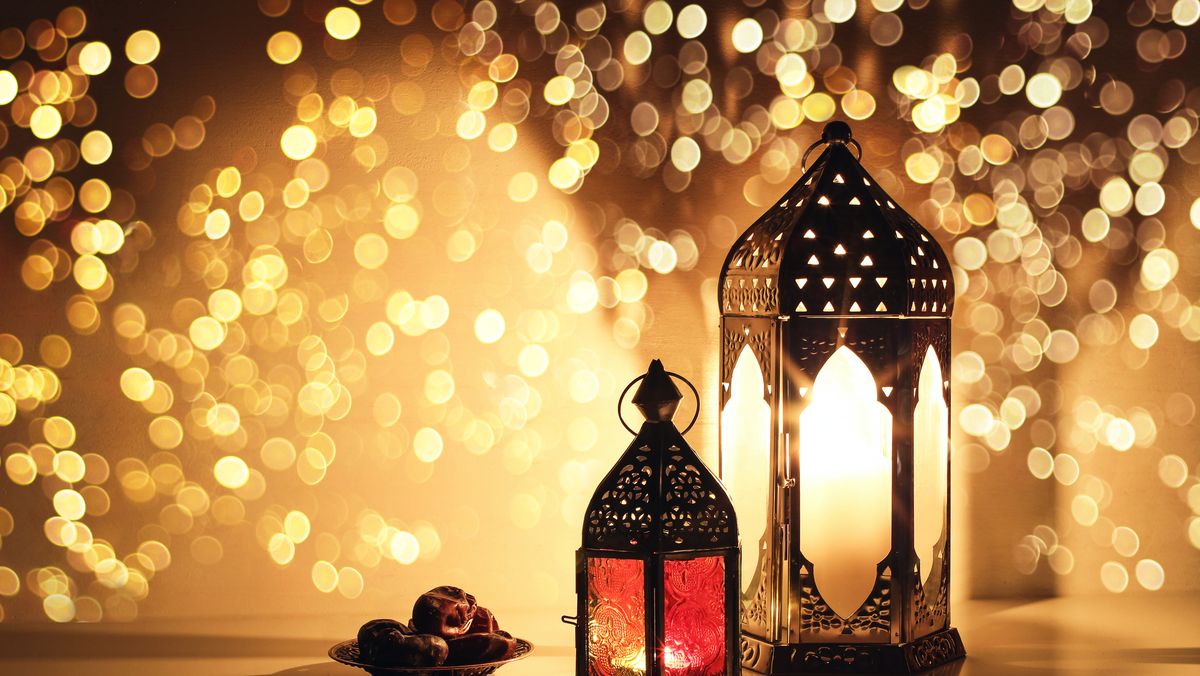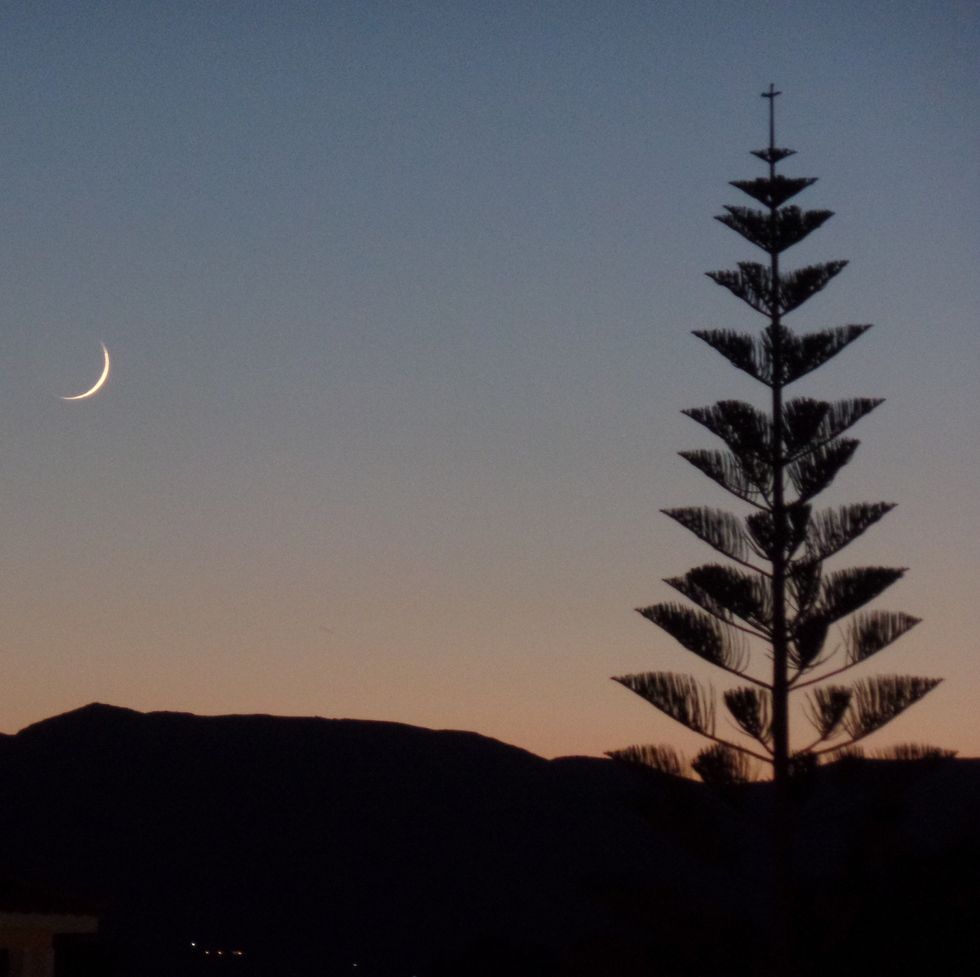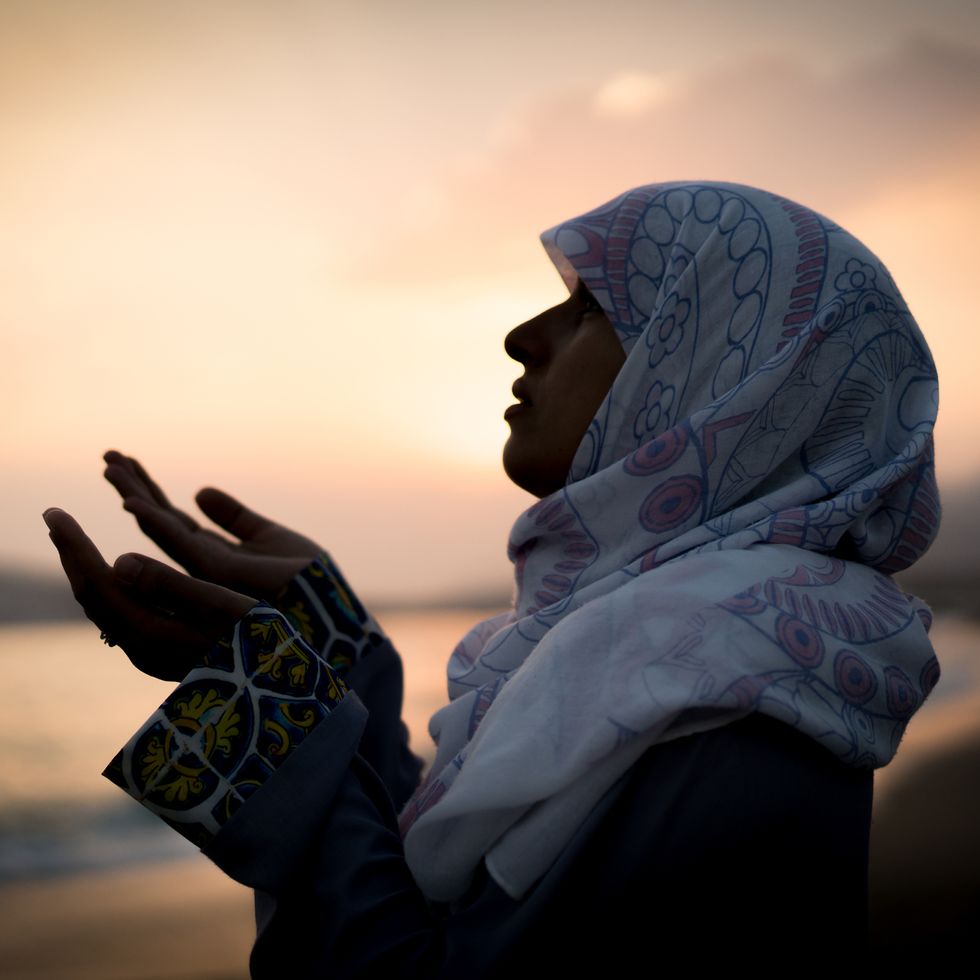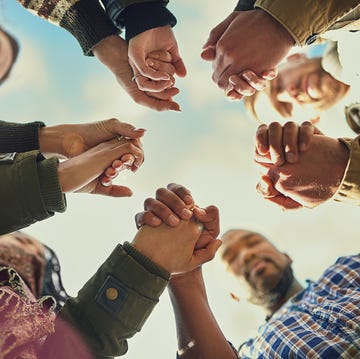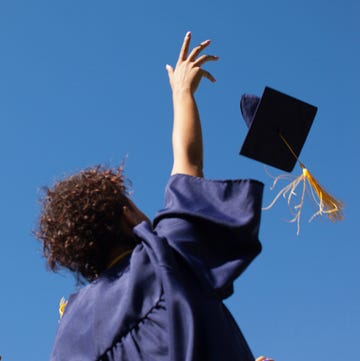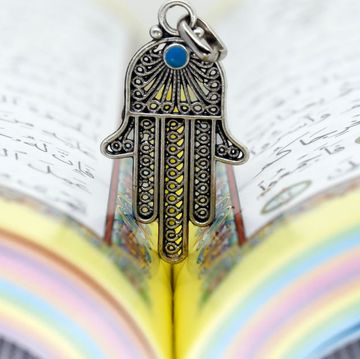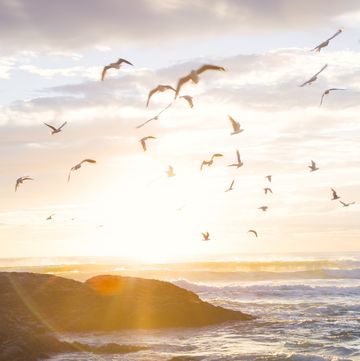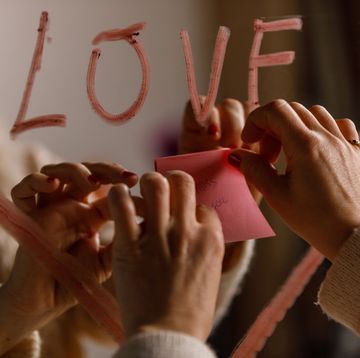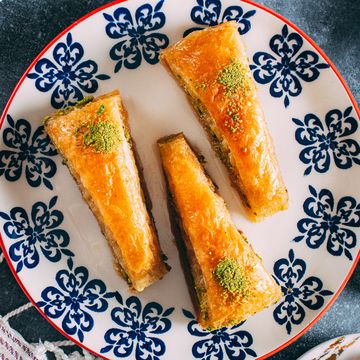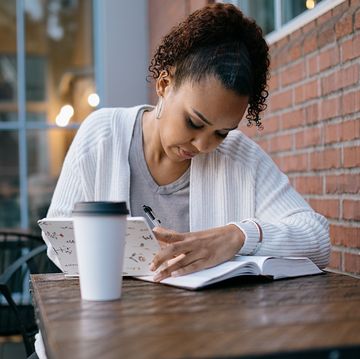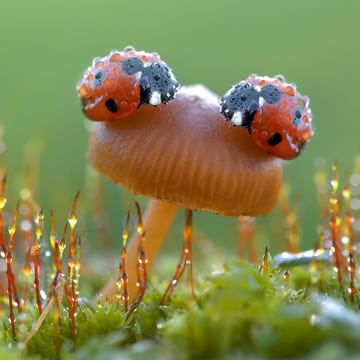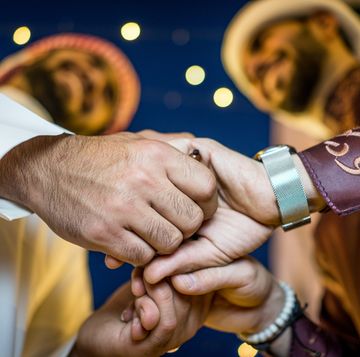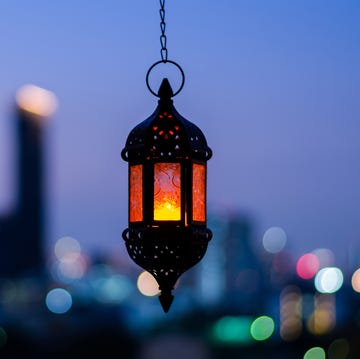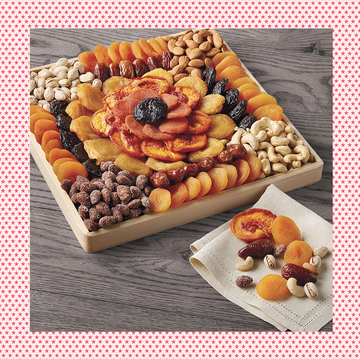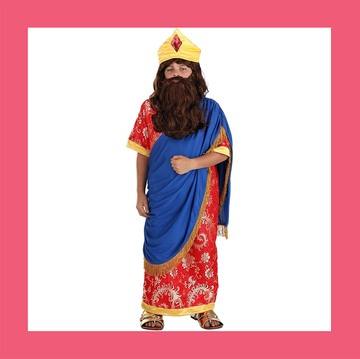Many may know that Ramadan is the holiest month in the Islam faith, but that's just one of many beautiful facts about this time of year.
The first thing to know is that Ramadan is the name of a month. It’s the ninth month on the Islamic calendar, and the name is of Arabic origin. The entire month is special to Muslims because this is the month in which the Quran, the holy book for Muslims, was revealed to the Prophet Muhammad in the 7th century. There is a passage in the Quran that provides explanation on the month of Ramadan and prescribes fasting in it.
“It was in the month of Ramadan that the Quran was revealed as guidance for mankind, clear messages giving guidance and distinguishing between right and wrong. So any one of you who is present that month should fast, and anyone who is ill or on a journey should make up for the lost days by fasting on other days later. God wants ease for you, not hardship. He wants you to complete the prescribed period and to glorify Him for having guided you, so that you may be thankful.” 2:185 (English Translation, Abdul Haleem)
During Ramadan, observant Muslims fast from food and drink from dawn to sunset. The evenings are marked with recitations of the Quran and special communal prayers that only take place in Ramadan. It is a time for community, family and generosity. It is also a time for hospitality. In this month, many families host sunset parties to break fast together.
When is Ramadan 2024?
The Islamic calendar is a fully lunar calendar, which means that the beginning of each new month starts on the new moon. Ramadan is the 9th month of the Islamic calendar, and it begins as soon as the new moon is sighted. There are two ways the new moon is sighted. One is the traditional way of sighting the new moon with the naked eye. The other way is to use astronomical calculations and technology to determine the new moon. Muslims may follow either of these approaches, though it sometimes causes those that follow the scientific method to start Ramadan a day earlier.
This year, Ramadan is expected to begin at sunset on Sunday, March 10, 2024 and conclude on Tuesday, April 9, 2024.
What does Ramadan celebrate?
Ramadan celebrates the revelation of the Quran. It is also a celebration of God’s Mercy. This is because during Ramadan, good deeds count for greater reward. It’s a time for Muslims to earn their salvation through their own hard work and good deeds. Muslims believe that after they die, they will be accountable to God on the Day of Judgement for how they behaved in this world. Each person’s intentions and actions will be measured on scales of justice. Those whose scales are heavy with good deeds will enter Paradise. Muslims also believe that Paradise has different levels, with the higher and more better levels of Paradise being reserved for those that strived to earn them. Ramadan is a once-a-year bonus opportunity to prepare for the hereafter by doing more good deeds because Ramadan yields a greater reward than other times of the year.
Why do people fast during Ramadan?
During Ramadan, healthy adult Muslims fast during daylight hours. As part of the fast, they abstain from all food and drink, as well as sexual activity. Fasting during Ramadan is one of the Five Pillars of Islam, which are the core beliefs and practices that define the religion.
In a piece about Ramadan written for Vox, writer Jennifer Williams explains: “The practice of fasting serves several spiritual and social purposes: to remind you of your human frailty and your dependence on God for sustenance, to show you what it feels like to be hungry and thirsty so you feel compassion for (and a duty to help) the poor and needy, and to reduce the distractions in life so you can more clearly focus on your relationship with God.”
Ultimately, one of the main reasons Muslims fast is because they are commanded to do so in the Quran as a way for them to increase in God-consciousness. Muslims believe the most important relationship in life is the one with the Creator. Fasting in Ramadan is one of the ways to nurture this relationship.
Do all Muslims fast during Ramadan?
Certain groups are exempt from fasting during Ramadan. These groups include children who have not reached puberty, the elderly, those who are physically or mentally incapable of fasting, pregnant women, breastfeeding mothers, and people who are traveling.
Besides fasting, what are some of the other ways people celebrate Ramadan?
One of the most important aspects of Ramadan is that it is a time to invocate God and help write our own destiny through supplication. Supplication in Arabic is known as dua. In between verses about Ramadan, God reveals in the Quran the following verse: “And when My servants ask you, [O Muḥammad], concerning Me - indeed I am near. I respond to the invocation of the supplicant when he calls upon Me. So let them respond to Me [by obedience] and believe in Me that they may be [rightly] guided” 2:186
The Night of Power, which only occurs in Ramadan, is a time for a Muslim to take all their desires, hopes and wishes to God with the belief that God can absolutely grant this to them. Some people write out their supplications in advance in a journal, while others might create a vision board for the things they wish to see manifest in their life. In this way, Ramadan is a time for asking for personal miracles, renewed hope and new beginnings.
In addition to this, like any other holiday, Ramadan is a time with a social and commercial aspect to it. Dinner parties and get-togethers are popular this time of year. Muslim businesses might offer Ramadan specials and sales, restaurants and bakeries feature seasonal holiday menus and there are always holiday TV specials streaming out of Muslim countries.
What should I do to be respectful of my Muslim friends and coworkers during Ramadan?
Hina Khan-Mukhtar, a teacher from the Bay Area has an insightful tip. “A good way to support is just having a very positive mindset about Ramadan, being excited for people, and saying things like, ‘How is your Ramadan going?’”
Keeping a positive mindset can also mean questioning your own assumptions. She says that as a parent, a misunderstanding she encounters often is that people assume the children must dislike fasting — which she says isn’t really the case. “That idea is actually completely the opposite of the truth. Fasting is seen as a rite of passage. A lot of kids are very, very eager to start fasting.”
Although it’s not expected that non-Muslims fast during Ramadan, Khan-Mukhtar also says that she’s had experiences where someone decided to fast with her in solidarity. “It's really heartwarming to see someone is wanting to experience what you're experiencing.”
Lastly, if you’re at an event like a work party, and you know you have Muslim coworkers who are fasting, it would be a thoughtful gesture to prepare a plate for them and cover it so that they can take it home and eat it when they break their fast that evening.
How to wish someone a Happy Ramadan
In addition to asking someone how their Ramadan is going and taking an interest in their experience, there are other ways you can wish them a Happy Ramadan. Here are a few ideas for Ramadan greetings you can share with friends, family, coworkers and anyone else in your life.
- Have a happy Ramadan and Eid al-Fitr!
- May this year's Ramadan leave you feeling rejuvenated and happy.
- Ramadan Mubarak!
- Have a peaceful Ramadan.
- May all your duas come true this Ramadan!
- May we enter this month of Ramadan in peace and faith.
- Wishing you love and joy in Ramadan and on Eid.
- Wishing you an Eid al-Fitr that's as sweet as you are!
- Eid Mubarak!
- May this Ramadan bring you a fresh start.
- Wishing you an easy fast!
- Have a wonderful Ramadan and a blessed Eid.
- Wishing you health, wealth, and happiness this Ramadan.
- You light up my life like a Ramadan lantern!
- I love you to the Ramadan moon and back.
- May the light of Ramadan continue to shine in your home all year long.
- Wishing you a Ramadan filled with joy!
- Ramadan Kareem!
- Wishing you harmony and joy during this month of Ramadan.

Jamie Ballard (she/her) is a freelance writer and editor who covers news, lifestyle, and entertainment topics, including sex and relationships, TV, movies, books, health, pets, food and drinks, pop culture, shopping, and personal finance. She regularly contributes to Cosmopolitan, Woman’s Day, Good Housekeeping, and YouGov, among other publications. When she’s not working, you can find her running, traveling, or scrolling TikTok. Follow her on Twitter.
Manal Aman is a lifestyle expert and founder of Hello Holy Days! where she designs fun products for Muslim holidays. She’s licensed her art to retailers like Crate & Kids and American Greetings and her products can be found all across North America at stores like Paper Source in the US and Indigo! in Canada. She’s worked with Martha Stewart, Real Simple, Better Homes & Gardens, Chatelaine and countless other media sites over the past decade sharing inspiring ideas and helpful tips for celebrating Muslim holidays. You can find her over at www.helloholydays.com and @helloholydays on social media.
